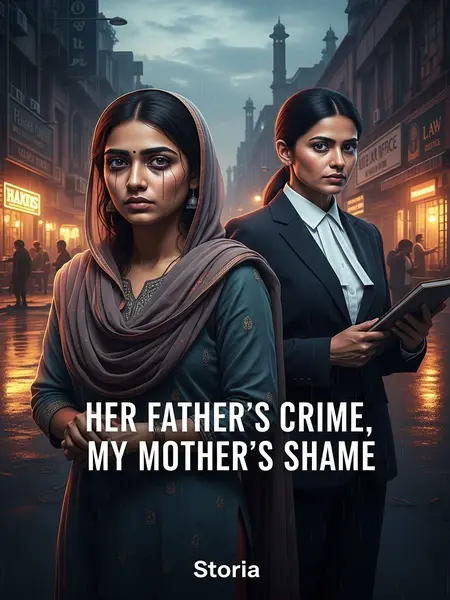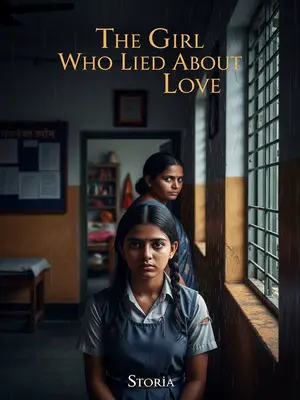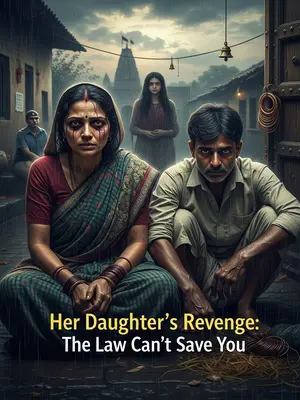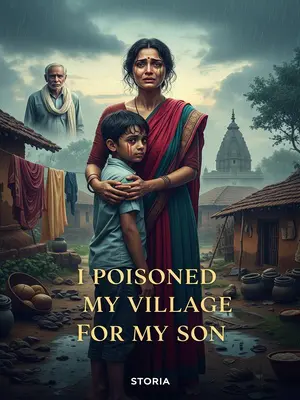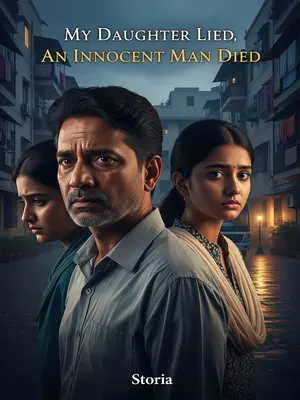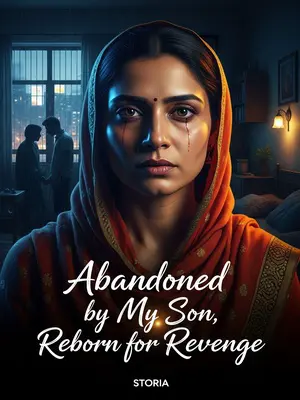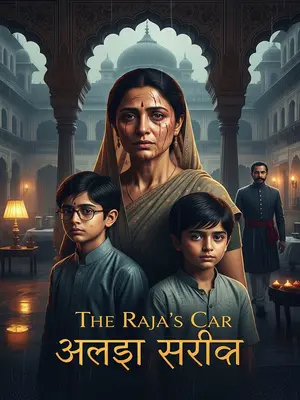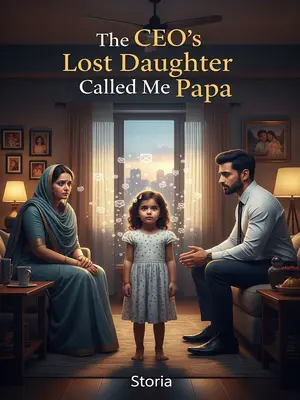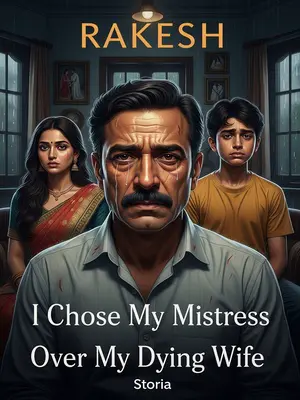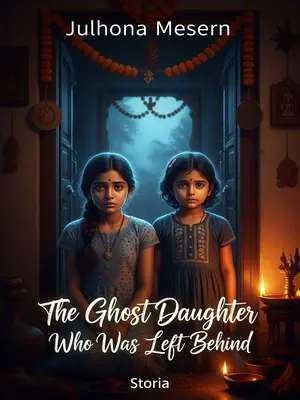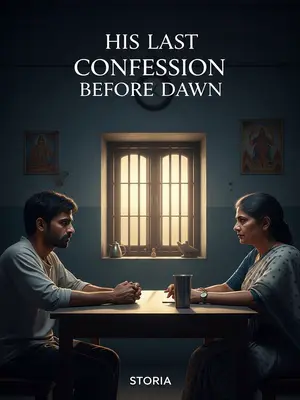Chapter 3: Crackers, Shame, and the Warehouse Fire
Meera’s Account (1)—
It all starts with my father and the cracker factory.
Her voice turned softer, as if she was reading aloud from an old diary. The traffic noises outside faded, and for a moment, I found myself somewhere else entirely—a small, dusty town, a long time ago.
I still remember my father. He had a gentle temperament, steady and unassuming.
He was the sort of man who would press his lips together before speaking, never raising his voice even when provoked. The kind who wore the same faded shirt to work, creases carefully ironed, shoes shining despite the dust. He would save the last piece of mithai for me on festivals, and when I fell ill, he’d sit beside my bed all night, fanning away the mosquitoes.
My mother married him when she was very young, and soon after, I was born. Their relationship was lukewarm—like many ordinary couples, there was no passionate love, only the routines of daily life.
In our mohalla, everyone said my parents made a practical pair. Amma used to joke, “Shaadi means sharing the same roof, not Bollywood love.” They were bound by routines—Amma kneading dough in the kitchen, Baba checking the accounts by the yellow bulb, their silences filled with small comforts.
My father was a quality inspector at the district’s cracker factory—a technical job. Maybe the job itself made enemies, and he was a stickler for the rules, so he didn’t get along well with the workers.
People respected him, but kept their distance. He would carry a battered leather bag, always bringing home the day’s worries tucked between his files. If a worker tried to sneak in an extra break, he would note it down, never wavering from his duty.
Every day after work, others would return in groups, but my father always came back alone. His thin figure would appear at the mohalla entrance, looking like a solitary teacher.
Other fathers laughed and joked on the way home, stopping at the chai stall. But Baba always walked straight back, eyes fixed ahead, never looking to the side, as if the world outside his work and home was too complicated to touch.
Once, I went to the cracker factory to find my father and happened to see him being cornered and beaten by several workers.
That day, I had finished school early and had gone looking for him, skipping between the dusty factory lanes, clutching the tiffin box Amma had packed. But the minute I turned the corner, I saw him on the ground, surrounded by a group of men with soot-stained hands, anger twisting their faces.
Compared to those burly men, my father was too thin and weak. But even as he was beaten to the ground, unable to fight back, he refused to beg for mercy.
Not a single plea escaped his lips. He gritted his teeth and took the blows, pride held tight inside, refusing to surrender in front of his daughter or those who wished him harm.
I was very young at the time. Seeing my father beaten with my own eyes, I was so frightened I burst into tears.
I stood frozen, clutching my tiffin like a shield, my cries echoing in the factory courtyard. Someone tried to hush me, but I howled louder, desperate for someone—anyone—to help.
The workers turned and saw me crying. Amused, they stopped hitting him, but still surrounded him, refusing to let him go.
They laughed, jeering at his helplessness. One of them nudged the others, making a show of wiping imaginary tears. But they didn’t dare lay another finger on him—not with a child watching.
My father lay on the ground. Through the gaps in the crowd, he saw me. His eyes instantly reddened, and he turned his head away, unwilling to meet my gaze. To be beaten so helplessly in front of his daughter was a deep humiliation.
It was the only time I saw Baba’s eyes shine with shame—a kind of wound no medicine could heal. He covered his face, turning away, as if wishing the earth would swallow him whole.
At that moment, the factory owner’s son happened to pass by. He casually scolded a few words and helped my father up. The workers, afraid of him, scratched their heads and laughed, dispersing as if it had all been a harmless joke.
Arvind, the malik’s only son, was tall, broad-shouldered, hair always slicked back as if he’d just returned from the city. With a single word, he sent the workers scattering like stray dogs caught stealing from the langar. As he knelt down to lift Baba, nearby workers mumbled under their breath, "Malik ka beta hai, chhodo yaar."
He lifted my father with surprising gentleness, dusting off his kurta as if restoring a broken toy. The contrast between them was stark.
He glanced at me, then at Baba, his mouth twitching in a lopsided smile—half pity, half challenge, the kind Delhi boys wear when they know they can get away with anything. "So useless—how will you protect your wife and child?" he taunted, his tone carrying the casual arrogance of privilege.
My father stood trembling, saying nothing.
His hands were shaking, but he refused to let his voice betray his pain. He simply nodded, holding his silence like a shield.
The difference between them wasn’t just in stature.
It was in their bearing, the way Arvind seemed to own the ground he walked on, while Baba moved as if apologising for taking up space. One born to rule, the other to endure.
Arvind was the only son of the factory owner and the future heir to the cracker factory. His family was wealthy and influential; he was always at ease.
Everyone knew that Arvind would inherit not just the factory, but the respect of half the district. He drove a new Ambassador car, wore branded shirts, and could bend the local police to his will with a single phone call. People whispered about his affairs, but nobody dared cross him.
But my family was poor. My father worked alone and had an average position at the factory; my mother was in poor health and lame, requiring expensive medical care every year. We had no savings, and every rupee had to be carefully planned.
Our house was small—just two rooms and a kitchen, the tin roof patched with bits of tarpaulin every monsoon. Amma’s limp meant she rarely left the house, and every time Baba came home late, she would worry herself sick, imagining the worst.
My father softly thanked him, then limped over to me and took my hand to leave.
I remember the feel of his calloused fingers wrapping around mine, the way he bent down, his lips pressed tight, as if swallowing his hurt so I wouldn’t see. We walked home slowly, our shadows stretched long in the evening light.
